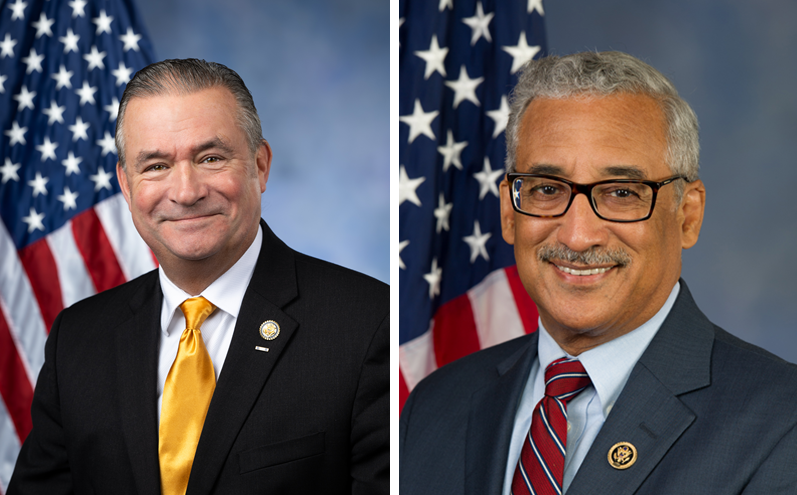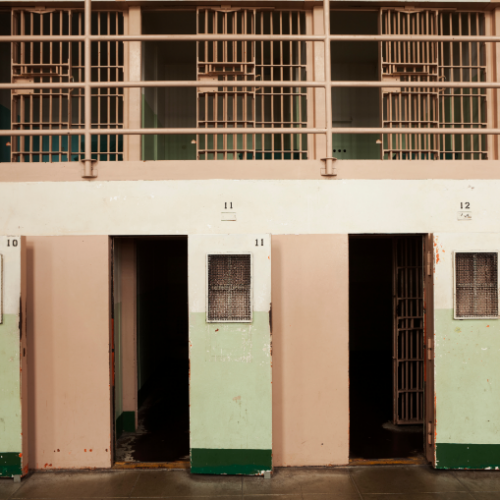Bipartisan Group of 66 Lawmakers Support Continued Funding for the Justice and Mental Health Collaboration Program

Left to right: Congressmen Don Bacon (R-NE) and Bobby Scott (D-VA)
A bipartisan group of 66 lawmakers, led by Congressmen Don Bacon (R-NE) and Bobby Scott (D-VA), wrote a letter calling for continued funding for the Justice and Mental Health Collaboration Program (JMHCP) in the Fiscal Year 2026 Commerce, Justice, Science, and Related Agencies appropriations bill. JMHCP supports initiatives for people with mental illnesses and co-occurring mental health and substance use disorders who interact with the justice system.
Originally enacted in 2004, JMHCP was reauthorized by Congress in 2008, 2016, and 2022 with broad bipartisan support. Since inception, JMHCP has funded more than 795 grants across 50 states, the District of Columbia, and several U.S. territories.
The program provides grants to state and local governments to pilot and launch innovative justice and mental health initiatives—such as crisis intervention teams, mental health courts, prosecutor-led diversion, police training, co-response teams with clinicians, jail treatment services, and crisis receiving centers—that can be sustained beyond the initial period and integrated into ongoing local practices and funding streams
Since 2004, 250 law enforcement agencies have used JMHCP funding to jumpstart co-responder models that reduce encounters with people who have mental illnesses and connect them to services. Similarly, more than 290 agencies have leveraged JMHCP funding to create new court-based responses, such as mental health courts and specialty dockets, to treat people with behavioral health needs and connect them to treatment. These initiatives are scaling the use of evidence-based practices that reduce recidivism, enhance public safety, lower public safety costs, and improve outcomes for individuals with mental illnesses or substance use disorders by connecting them to needed care.
The letter from Representatives Bacon, Scott, and colleagues highlights that “people with mental illnesses who are involved with the criminal justice system tend to stay in jail longer than people without mental illnesses. For example, people with mental illnesses spend twice as long in jail awaiting trial than people without mental illnesses. Those experiencing mental illnesses are also more likely to return to jail. Jails spend two to three times more on incarcerating people with mental illnesses, and yet this investment has not translated into increased public safety or advances in longer-term recovery.”
The letter goes on to note that “Congress can take a leadership role to address this challenge by continuing its bipartisan support for funding to bring together mental health providers, criminal justice agencies, law enforcement, consumers, and family members to better identify and address the needs of people with mental health conditions involved with the criminal justice system. This collaboration helps direct people to appropriate care, which saves lives, reduces recidivism, long-term incarceration, and other criminal justice costs.”
A positive school experience, where a child feels secure, is essential for their well-being. However, for many children…
Read More The Path to Statewide Community Crisis Response in New Jersey: A Community Advocate’s Perspective
Read More
The Path to Statewide Community Crisis Response in New Jersey: A Community Advocate’s Perspective
Read More
 Supporting Children of Incarcerated Parents: Reimagining School and Community Collaboration
Supporting Children of Incarcerated Parents: Reimagining School and Community Collaboration
A positive school experience, where a child feels secure, is essential for…
Read More Bridging Communities and Correctional Systems: Q&A with CSG Justice Center Advisory Board Member Commissioner Nicholas Deml
Read More
Bridging Communities and Correctional Systems: Q&A with CSG Justice Center Advisory Board Member Commissioner Nicholas Deml
Read More
 Assigned to the Cloud Crew: The National Incarceration Association’s Hybrid Case Management for People with Behavioral Health Needs
Assigned to the Cloud Crew: The National Incarceration Association’s Hybrid Case Management for People with Behavioral Health Needs
When returning to their communities from criminal justice settings, people with behavioral…
Read More Meet the Medicaid and Corrections Policy Academy Mentor States
Meet the Medicaid and Corrections Policy Academy Mentor States
New Hampshire Department of Corrections Commissioner Helen Hanks presents at the Medicaid…
Read More










